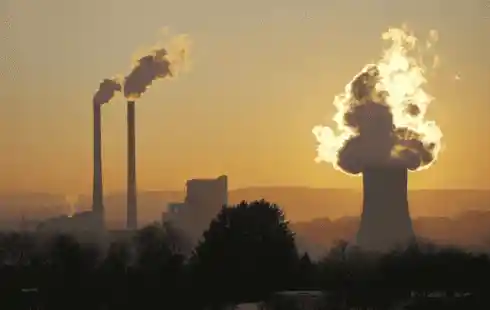Tohru in der Schreiberei, Munich's newest three-Michelin-star restaurant
Section: Arts
 Following extensive discussions and negotiations, the federal government has reached an agreement on a strategy for power plant development. Federal Chancellor Olaf Scholz (SPD), Economics Minister Robert Habeck (Greens), and Finance Minister Christian Lindner (FDP) have finalized the key elements of a power plant strategy, as outlined in a joint statement on Monday.
Following extensive discussions and negotiations, the federal government has reached an agreement on a strategy for power plant development. Federal Chancellor Olaf Scholz (SPD), Economics Minister Robert Habeck (Greens), and Finance Minister Christian Lindner (FDP) have finalized the key elements of a power plant strategy, as outlined in a joint statement on Monday.
The strategy aims to establish a framework for investments in modern, highly flexible, and environmentally friendly power plants capable of utilizing hydrogen in the future. In the short term, the construction of new power plant capacities, totaling up to four times 2.5 gigawatts of hydrogen-capable gas power plants, will undergo a tendering process. Funding for these projects will be sourced from the Climate and Transformation Fund, a dedicated federal fund, with an estimated cost of approximately 16 billion euros over the next 20 years, according to coalition sources.
As part of the agreement, plans for a "capacity mechanism" will be developed, with a political consensus expected within the federal government by the summer of 2024 at the latest. This mechanism could incentivize operators to maintain power plant capacity, providing a stimulus for investment.
The planning and approval procedures for the power plants outlined in the strategy will undergo significant streamlining. The agreement reached will also be presented and discussed with the EU Commission in Brussels.
The comprehensive discussions within the federal government, especially among Scholz, Habeck, and Lindner, have paved the way for this agreement. The energy industry has long awaited a strategy for the construction of hydrogen-capable gas power plants by 2030, aligning with broader objectives to significantly expand renewable energy sources. The federal government aims to derive 80 percent of its electricity from renewable sources by 2030, compared to the current figure of just over half.
These new gas power plants are expected to address electricity demand during periods of low renewable energy production, commonly referred to as "dark lulls." However, hesitancy among energy companies to invest stems from concerns about the profitability of these new power plants. Habeck has advocated for substantial state funding, while FDP politicians have emphasized the high costs and called for technological flexibility.
The traffic light coalition, comprising the SPD, Greens, and FDP, has expressed the ambition to ideally advance the coal phase-out to 2030, aiming to curb the emission of climate-damaging carbon dioxide. The new gas power plants are anticipated to replace coal-fired power plants, initially operating on natural gas before transitioning to climate-friendly hydrogen.
Image by Monika from Pixabay
Section: Arts

Section: Health

Section: Fashion

Section: Politics

Section: Fashion

Section: News

Section: Fashion

Section: Arts

Section: Politics

Section: Health Insurance
Both private Health Insurance in Germany and public insurance, is often complicated to navigate, not to mention expensive. As an expat, you are required to navigate this landscape within weeks of arriving, so check our FAQ on PKV. For our guide on resources and access to agents who can give you a competitive quote, try our PKV Cost comparison tool.
Germany is famous for its medical expertise and extensive number of hospitals and clinics. See this comprehensive directory of hospitals and clinics across the country, complete with links to their websites, addresses, contact info, and specializations/services.
Join us at the Kunstraum in der Au for the exhibition titled ,,Ereignis: Erzählung" by Christoph Scheuerecker, focusing on the captivating world of bees. This exhibition invites visitors to explore the intricate relationship between bees and their environment through various artistic expressions,...



No comments yet. Be the first to comment!